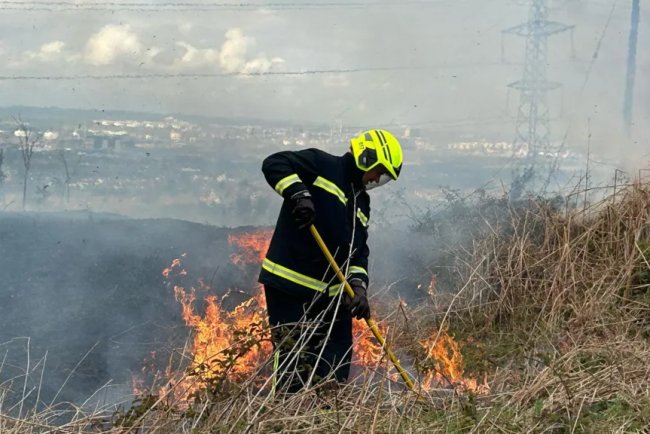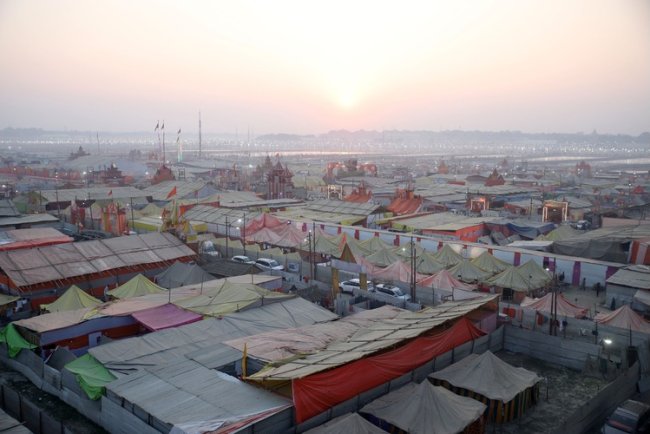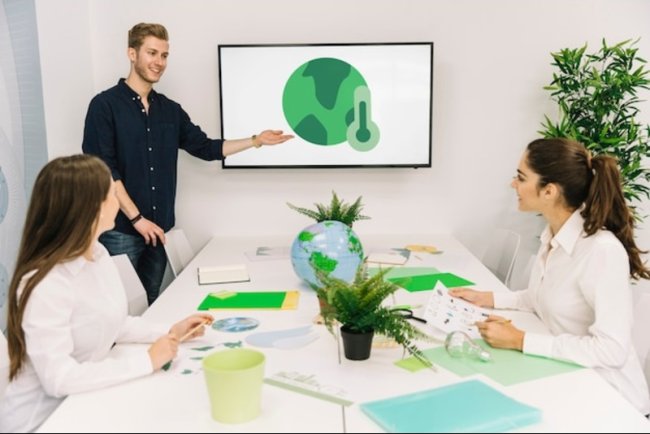JLR Invests £65M to Boost Sustainability and Customisation
JLR invests £65M to transform paint operations, boosting sustainability, efficiency, and luxury customisation.

Jaguar Land Rover, the luxury automobile manufacturer, is taking a big step towards reducing its environmental footprint by investing £65 million in its global paint operations to transform it. The investment is part of JLR's broader commitment to its Reimagine strategy that aligns with its ambition to reach net-zero emissions. The company's proposal meets the need for individual bespoke luxury vehicle personalisation, especially with regard to the Range Rover and Range Rover Sport, while saving on energy and, at the same time, carbon dioxide (CO₂) emissions.
JLR's Chief Sustainability Officer, Andrea Debbane, said paint shops are an important area for the company, because they represent some 80% of its operating emissions. With the automotive industry increasingly focusing on sustainability, JLR sees its paint operations as a major opportunity to drive positive environmental change. The investment in its paint facilities is expected to yield substantial savings in both CO₂ emissions and energy costs, while allowing the company to meet the growing demand for customisation options in its vehicles.
This has been primarily attributed to the increase in demand for bespoke paint choices for JLR cars. Demand for personalized paint options has risen drastically since the fiscal year 2022, and personalization increases the average price of the Range Rover SV by £70,000. This has led JLR to invest £41 million into its Castle Bromwich facility in the West Midlands as it prepares to upgrade the same significantly to meet increasing demand for bespoke luxury vehicles.
By 2025, the Castle Bromwich transformation will be complete with the installation of state-of-the-art paint booths. A substantial amount of the £41 million investment, £26 million, will be spent on upgrading the facility with advanced, energy-efficient paint booths that have fully automated spray robots. These robots will reduce paint waste by 30% compared to traditional hand painting, making the process more sustainable. This will also result in water and energy consumption, hence improving environmental performance for the facility.
Castle Bromwich will also make it possible for JLR to offer the SV Bespoke Paint service to all of its brands for the first time. This service lets luxurious customers align the color of their automobile with private jets, yachts, or other distinctive preferences, making it one of the levels of personalization that is unheard of in the automotive industry. The bespoke service captures JLR's commitment to premium customer experience while enhancing its sustainability goals at the same time.
In Slovakia, JLR is investing £24 million in its Nitra plant, where it will implement groundbreaking upgrades to its paint operations. The facility will receive a new electric paint booth and curing ovens, which represent a significant leap towards zero-carbon operations. These upgrades are expected to avoid 500 tonnes of CO₂ emissions annually, the equivalent of around 2,200 barrels of oil. The Nitra plant will also benefit from the installation of new heat exchangers and smart oven controls, which are projected to save 2,250 tonnes of CO₂ every year and reduce operational costs by £750,000.
These improvements at the Nitra plant will increase JLR's production capacity, allowing the company to meet the rising demand for bespoke orders. The new facilities are expected to accommodate more than 17,000 bespoke orders every year, which will be a direct reflection of the increased demand for customized luxury vehicles. The first vehicles produced with the new paint line at Nitra are expected to be launched in 2026, which will be a significant step in JLR's efforts to improve both its operational efficiency and its environmental sustainability.
The investment in both the Castle Bromwich and Nitra facilities underlines JLR's commitment to one of the most carbon-intensive processes in the automotive industry. Since paint operations are central to the company's emissions profile, these upgrades are a critical component of JLR's strategy to significantly reduce its environmental impact. Moreover, JLR is setting a new benchmark in the luxury automotive sector in terms of operational efficiency with the adoption of electric paint booths and automated spray robots.
These efforts also mirror the greater shift in the automobile industry toward a more sustainable means of production. With consumer preference leaning more toward eco-friendly brands, the investment in sustainable paint operations by JLR makes it a pioneer in the luxury car market. The company is able to maintain its bespoke vehicle while making an active contribution to reducing carbon emissions worldwide.
In summary, Jaguar Land Rover’s £65 million investment in transforming its paint facilities marks a significant move toward sustainability in the luxury automotive sector. By modernising its operations, JLR aims to reduce its CO₂ emissions, lower energy costs, and meet the surging demand for personalised luxury vehicles. The company's efforts at its Castle Bromwich and Nitra facilities are setting a new benchmark for sustainability, allowing JLR to maintain its position as a leader in both luxury and environmentally conscious automotive innovation.
What's Your Reaction?

















